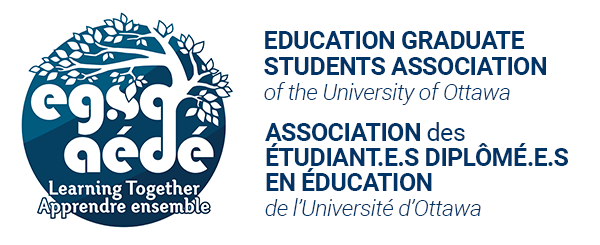La série de conférences étudiantes offre aux étudiant.e.s l’occasion de mettre en pratique leurs techniques de présentation et de partager leurs idées avec leurs collègues. Les étudiant.e.s peuvent pratiquer la présentation pour une conférence à venir, la défense, ou partager d’autres idées (par exemple, méthodologie, épistémologie, cadre théorique) avec leurs collègues.
Les étudiant.e.s sont invité.e.s à faire partie de l’auditoire pour apprendre de leurs pairs et fournir une rétroaction constructive aux présentateurs. Les sessions seront annoncées via le bulletin EGSA-AÉDÉ, la page Facebook et Twitter. Nous avons hâte de vous y voir!
Présentateurs : Jesse Henneberry & Julie Sullivan
Date: le 19 janvier 13h 00 (LMX 477)
(Veuillez noter que ces informations sont envoyées uniquement dans la langue dans laquelle elles sont reçues.)
Deconstructing Psychotherapy (Jesse Henneberry, PhD Candidate)
I wish to give a presentation on the practice of deconstructing psychotherapy. I hope to highlight the benefits to both clients and therapists when therapists can hold a space to deconstruct their professional role. This however may prove difficult in practice, as the therapist is required to participate in the act of therapy while simultaneously deconstructing this same act. While challenging, I believe deconstructing our conventional story of what a therapist is, and how this story gets told, highlights an important political element of psychotherapy that is often overlooked.
Using UDL to teach French Immersion in an elementary classroom (Julie Sullivan, MEd Student)
A presentation that offers a way to provide second language instruction to LD learners in a French immersion classroom. The presentation will include some research on the findings for LD inclusion as well as a methodology for incorporating these learners in the classroom. Universal Design for learning is a framework that is designed to accommodate special learners into the design of the lesson plan instead of designing a lesson and then adding the accommodations at the end. It is an exciting approach that could potentially change the way that we look at LD accommodations. The framework could also be used support ELL students in both the English and French streams.
